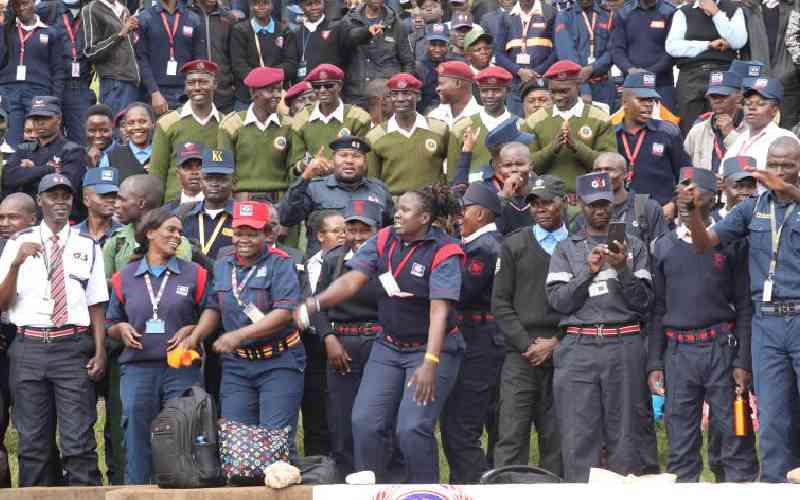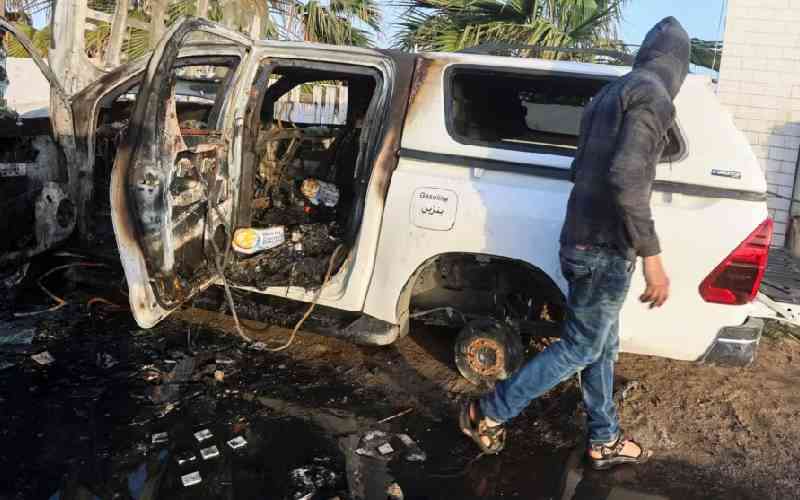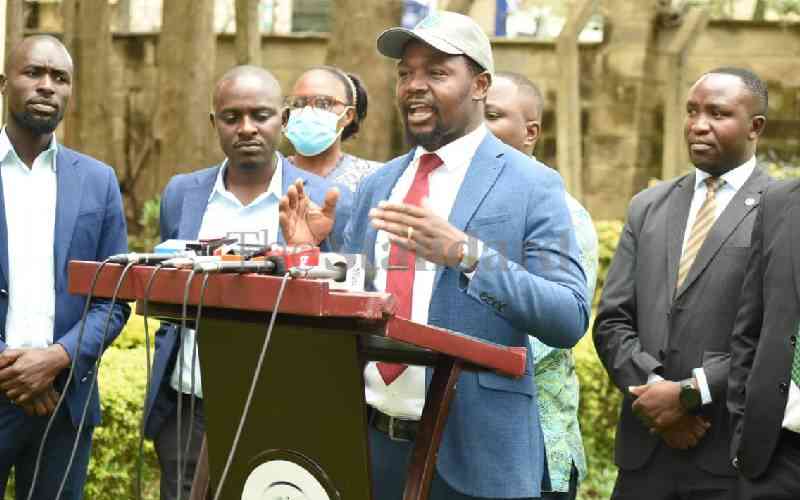By Machel Waikenda
“First they came for the Socialists, and I did not speak out — Because I was not a Socialist. Then they came for the Trade Unionists, and I did not speak out — Because I was not a Trade Unionist. Then they came for the Jews, and I did not speak out — Because I was not a Jew. Then they came for me — and there was no one left to speak for me.”
This is just one version of a poem by Pastor Martin Niemoller who was detained in a concentration camp in 1937.
He spoke about the cowardice of German intellectuals who watched in stony silence as Nazis systematically arrested, raped, killed and de-humanised groups of people they thought were inferior.
Fast-forward to Kenya today and it appears this silence will cost Kenyans dearly if we are not determined to win the war on crime. It will not be won without the support of the public which must see it as a duty for us to report to authorities suspicious-looking people and become whistle-blowers to help our security forces become equal to the task.Criminals live within our homes and communities and only we can play the critical role of securing our safety by exposing them. We should not allow criminals to win the war by changing our way of life or restricting our freedoms. Indeed, insecurity is a clear and present danger to our economic, social and personal wellbeing. Mombasa, for instance, has been tense since Sunday when unknown gunmen killed a Muslim cleric, Sheikh Abubakar Shariff, alias Makaburi. As a result of the killing, there were pockets of violence as some of his supporters vented their anger.
Similar incidents were seen when another Muslim cleric Aboud Rogo was shot dead in unclear circumstances. However, we must avoid using such incidents as an excuse to engage in violence and spread religious hatred against other Kenyans.
While Makaburi openly supported religious extremism, it is important that we recognise that the Constitution requires us to uphold the rule of law. We have to allow our institutions and system to deal with suspected criminal elements instead of resorting to extra-judicial killings whether by police or private citizens.
The aftermath of recent attacks has seen police swoops in Mombasa and Nairobi target suspected criminal elements suspected to be behind various attacks. This, however, should also not be an excuse for overzealous officers to harass innocent Kenyans. The law is clear that functions of the police include maintenance of law and order, preservation of the police and protection of life and property.
Even as police get on with their work despite low salaries and poor equipment, they continue to serve Kenyans diligently. Therefore, it is imperative that we appreciate their sacrifice.
Yes, sometimes, police officers may have to shoot down armed criminals. However, this must only be done to protect them and others and should not be misunderstood as a license to kill. That said, law enforcement agencies must pursue whoever was responsible for killing Makaburi and ensure closure of the matter. They must also pursue and arrest all those who have been responsible for various recent attacks that have left Kenyans maimed or dead.
The Government must take a tough stand on matters related to extremism and radicalisation of youths using religion. Religion must not be used to protect criminals. There is urgent need to develop a counter-radicalisation policy to prevent youth from embracing ideologies of violent groups. The public must also remain vigilant and embrace peaceful ways of dealing with insecurity. Security and peaceful co-existence is a responsibility of every one of us. A good starting point is we all embrace the “Nyumba Kumi” as part of the Rapid Response Initiative introduced by Government to deal with insecurity. The “Nyumba Kumi” concept will not only enhance security among neighbours, but will also enhance national cohesion. We must contribute to securing our environment by not harbouring criminals. Banish the silence.
The writer is a political analyst and communications consultant
 The Standard Group Plc is a
multi-media organization with investments in media platforms spanning newspaper
print operations, television, radio broadcasting, digital and online services. The
Standard Group is recognized as a leading multi-media house in Kenya with a key
influence in matters of national and international interest.
The Standard Group Plc is a
multi-media organization with investments in media platforms spanning newspaper
print operations, television, radio broadcasting, digital and online services. The
Standard Group is recognized as a leading multi-media house in Kenya with a key
influence in matters of national and international interest.
 The Standard Group Plc is a
multi-media organization with investments in media platforms spanning newspaper
print operations, television, radio broadcasting, digital and online services. The
Standard Group is recognized as a leading multi-media house in Kenya with a key
influence in matters of national and international interest.
The Standard Group Plc is a
multi-media organization with investments in media platforms spanning newspaper
print operations, television, radio broadcasting, digital and online services. The
Standard Group is recognized as a leading multi-media house in Kenya with a key
influence in matters of national and international interest.








